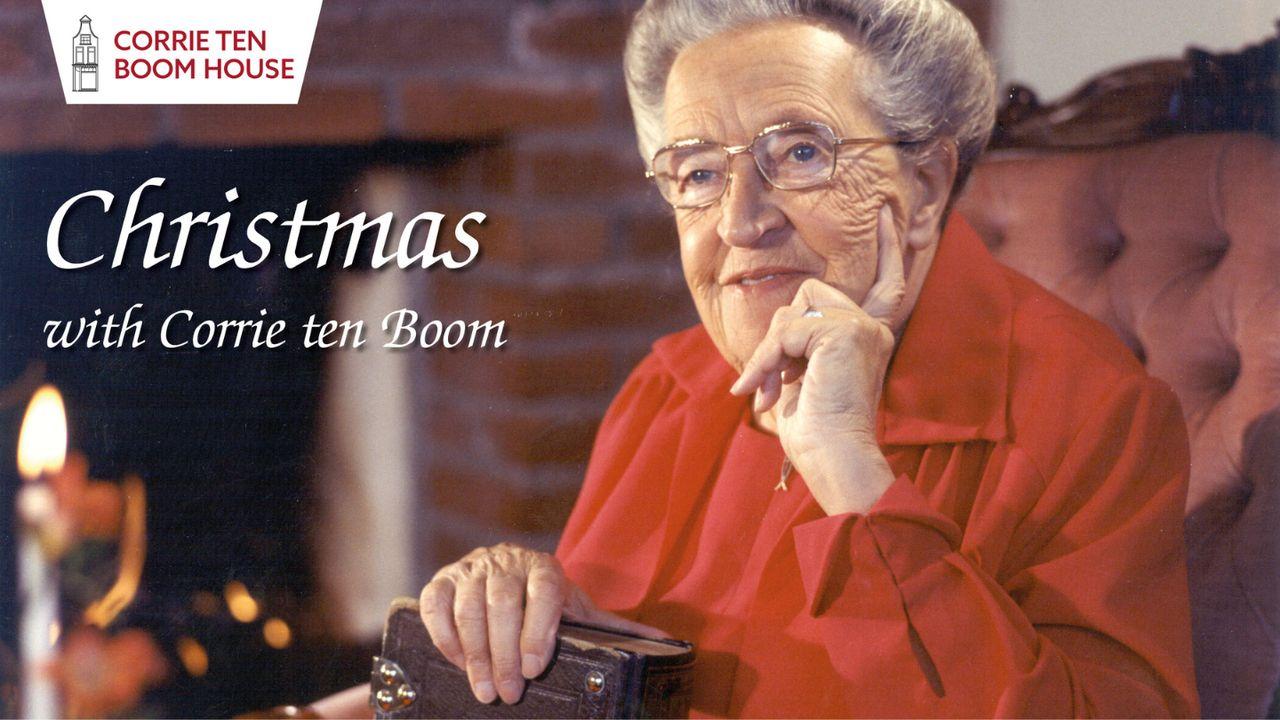
“I could never do what she did,” I thought.
I lay in a hammock under the shade of a maple tree in late summer. The breeze danced along my sandaled feet and through my hair. Birds serenaded one another, their melodies singing of their magnificent Creator. The stark contrast between my setting and the author whose book I was reading didn’t go unnoticed.
I was free; she was captive. I was reclined, comfortable; she was in cramped, cold barracks. The sun kissed my skin; fleas ravaged hers.

The woman I speak of is Corrie ten Boom. Corrie and her family boldly risked their lives to hide Jews in their home during World War II. After betrayal by a fellow Dutch citizen, they were sent to a Nazi concentration camp. Corrie was the only member of her family to survive the horror.
I learned about Corrie when a sister in Christ gifted me her bestseller, The Hiding Place. Page after page, each word cut straight to my heart. Minutes passed where I’m not sure I blinked. Her testimony gripped my heart in a way no other person in history has.
In some of the darkest, most evil circumstances in human history, Corrie planted her feet on the firm foundation that is Jesus Christ. She taught me the following sweet truths about suffering under God’s sovereign care:
1. Suffering ignites our desire for heaven.
Dear Jesus . . . how foolish of me to have called for human help when You are here. To think that Father sees You now, face to face! To think that he and Mama are together again, walking those bright streets. . . (170)
When God blessed me with The Hiding Place, I needed more eagerness for heaven. At the time, my mind was consumed by thoughts of the frailty of life. I desired to confidently declare that I wasn’t afraid of my loved ones dying or suffering but I couldn’t.

Death and suffering encircled Corrie in every corner of the extermination camps. She witnessed men, women, and children extinguished by hatred’s hands. And yet, Corrie submitted her fears to the Father’s care. She grieved evil’s effects but found hope for eternity through suffering.
How often we forget—and ignore—that death is an act of God’s mercy. Death releases us from sin’s grip; death ushers us into the glorious presence of our Father and Savior King. The death of Christ brought us life (John 3:16); we will never die (John 11:26)!
Like Corrie ten Boom, we can eagerly anticipate the day when we will see him face-to-face, when “he will wipe away every tear from [our] eyes, and death shall be no more, neither shall there be mourning, nor crying, nor pain anymore, for the former things have passed away” (Revelation 21:4).
2. Suffering is not an excuse to sin.
Oh, this was the great ploy of Satan in that kingdom of his: to display such blatant evil that one could almost believe one’s own secret sins didn’t matter. (224)
Corrie ten Boom chose to confront her own sin during her suffering in the concentration camp. This floors me. Rather than retaliatory, accusatory, and outward focusing, she repented of the “cancer”—as she calls it—of her selfishness and pride. What a message for the believer!

Jesus was sinless, therefore he never had to confront his own sin. However, he understands the human lure to sin in suffering. He was mocked, tortured, humiliated—and tempted by Satan himself (Matthew 4:1-11; Luke 4:1-13). Jesus could have retaliated by damning and cursing those who wronged him. Instead, he loved, forgave, and extended eternal life to all who place their faith in him.
3. Suffering makes us more Christlike.
Even as the angry, vengeful thoughts boiled through me, I saw the sin of them. Jesus Christ had died for this man; was I going to ask for more? Lord Jesus, I prayed, forgive me and help me to forgive him. (247)
Can you imagine being captive, tortured, beaten, and starved by Nazis? I can tell you what my intentions would be: I’d wish harm and evil upon them. But Corrie? Though a challenging process for her, she chose to see her enemies as people for whom Christ also died; she prayed for and forgave them.
Corrie displayed Christ’s command to forgive our debtors (Matthew 6:12) and put away bitterness, wrath, anger, malice, and slander (Ephesians 4:31). She followed his command to love our enemies and pray for our persecutors (Matthew 5:44). If Corrie can grab the hands of a former Nazi, rejoice in his coming to faith in Christ, and call him “brother” surely so can I with my enemies.
Power Perfected in Weakness
The scripture that best describes Corrie ten Boom comes from Paul’s words to the Corinthians:
But he said to me, ‘My grace is sufficient for you, for my power is made perfect in weakness.’ Therefore I will boast all the more gladly about my weaknesses, so that Christ’s power may rest on me. That is why, for Christ’s sake, I delight in weaknesses, in insults, in hardships, in persecutions, in difficulties. For when I am weak, then I am strong. (2 Corinthians 12:9-11)
Corrie’s model of reliance, obedience, trust, and perseverance helped deliver me from the chains of control and fear of suffering. Her story represents the truth that no suffering, no evil, no pain can truly destroy those who are secured in Christ.
Corrie ten Boom helped me see—and more importantly, believe—that Christ’s power is truly made perfect in weakness, and that his grace is sufficient for me and everyone who calls on his name.
Leave a Reply